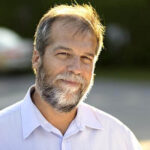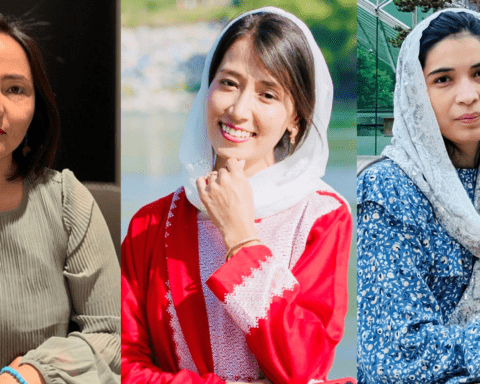We live in a world where fear is easy to spread. There is no shortage of evidence that bad things happen and that there are some bad actors in a lot of places.
The rise of the 24/7 news cycle and the ubiquity of social media have a lot to do with this. Sometimes, this fear is disproportionate to reality. The fear of violent crime is a good example: statistics in this country and others show pretty convincingly that violence of this nature is at historic lows and yet people still rank fear of violent crime high on their list of anxieties.
Terrorism fits here as well, as I have often said.
While there is no doubt that terrorism exists and we are reminded of it daily (less so in the West and more so in countries like Afghanistan, Iraq and Somalia), we still have to maintain an objective perspective. Even if terrorism occurs more frequently today than it did, say, 40 years ago (although historical analysis might even differ on that point) it is still a rare event.
It is impossible to claim that terrorism is more rampant than non-terrorist crime for instance (shootings, domestic violence, etc.) let alone other kinds of death (disease, car accidents, etc.).
“Manufactured” fear
Terrorism is different from other forms of violent deaths because of its inherent ability to cause fear. That is why we call it terrorism – it instills terror and fear. That in essence is what the terrorists are trying to achieve, making us afraid of what they can do so that we will make decisions about things (foreign policy is a primary goal) under duress, decisions we would not normally make.
Some fears are natural – fear of snakes or spiders – and may go back a long way in the history of humanity. Others are manufactured. War and terrorism would fit here. If a fear is manufactured there must be a manufacturer and an audience (or recipient) of that fear. The audience, I would argue, has a choice of whether to accept or embrace the fear. It is as simple as that.
In other words, we play an enormous role in our own freedom from fear. We can simply choose not to be afraid.
Defeating terrorism
I am not trying to oversimplify the terrorist threat or the challenge in dealing with it. This is indeed a hard problem that has always defied, and will most likely always defy, simple solutions. We will not ‘defeat’ terrorism anymore than we will ‘defeat’ crime in general.
But we can ‘defeat’ the goal of the terrorists by refusing to be cowed by their actions and their propaganda. We can decide not to allow them to make us afraid.
I’d like to end with a quote by the Swedish Prime Minister in the wake of this month’s terrorist attack in Stockholm (an Uzbek terrorist drove a stolen beer truck into a pedestrian mall, killing four and wounding 15) as it really sends a strong message about fear: “I believe today’s [gathering] was a clear message from Stockholm and Sweden that we intend to keep our open, warm and inclusive society. That was the message. Terrorism will never defeat Sweden.”
Would that we all elected to not give in to fear and terror and tell the terrorists that they will never win.
Phil Gurski worked for more than three decades in Canadian intelligence, including 15 at Canadian Security Intelligence Service (CSIS), and is the author of the Threat from Within and Western Foreign Fighters (Rowan and Littlefield). He blogs at http://www.borealisthreatandrisk.com/blog/
Phil Gurski is a former terrorism analyst at the Canadian Security Intelligence Service (CSIS). He specializes in radicalization and homegrown Al Qaeda/Islamic State/Islamist-inspired extremism and has published several books, including the forthcoming When Religions Kill: how extremists justify violence through faith.” He is a member of New Canadian Media’s board of directors.





